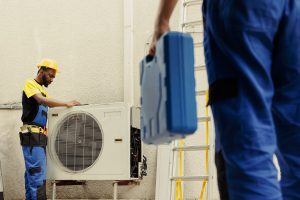Navigating Flammable Materials at Work: Simple Safety Tips

Introduction:
In our workplace, some materials can easily catch fire, and it’s crucial to know how to handle them safely. This blog will guide you through understanding flammable materials, preventing fire hazards, and the rules you need to follow to stay safe at work.
Flammable Materials
What Are They?
Flammable materials are things that can quickly catch fire. They can be solids, liquids, or gases. Examples you might find at work include things like liquefied petroleum gas (LPG), paints, varnishes, and lacquers.
Fire Hazards:
If we don’t handle these materials carefully, it can lead to serious fire risks. Some examples of dangers include:
- Storing flammable materials without enough fire protection.
- Keeping things that can catch fire near flammable materials.
- Doing hot work (like welding) close to flammable stuff.
Preventing Fire Hazards
Storage Safety:
To keep things safe, it’s important to store, handle, and dispose of flammable materials the right way.
Storage Tips:
- Store as little flammable stuff as possible.
- Keep storage areas away from heat or things that can start a fire.
- Make sure storage spaces are well-ventilated.
- Store flammable materials in cool, dry places.
- Don’t use plastic or glass containers for storing them.
- Put labels on containers to show they have flammable stuff inside.
- Keep containers closed when not using them.
- Have firefighting and spill cleanup tools in storage areas.
Handling Guidelines:
- Read the safety info (SDS) for the material.
- Check containers to make sure they’re not damaged.
- Look around your work area for things that could start a fire.
- Know your company’s emergency procedures for fires.
- Wear the right protective gear for your job.
- Use only the amount of flammable material you need.
- Put leftovers back in storage and close containers when done.
Disposal Steps:
Don’t throw flammable waste with regular trash.
- Label waste bins as “HAZARDOUS WASTE.”
- Keep bins closed when not using them.
- Call the waste collector when you have enough for collection.
- Record details of waste disposal in a register.
Laws and Standards
Follow the Rules and Regulations:
If you’re in charge, make sure you follow these rules and regulations in Singapore:
WSH (General Provisions) Regulations
Fire Safety (Petroleum and Flammable Materials) Regulations
Environmental Public Health (Toxic Industrial Waste) Regulations
Source:
Workplace Safety and Health Council
https://www.tal.sg/wshc/topics/chemicals/flammable-materials



